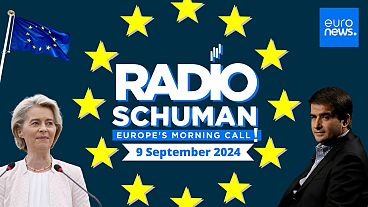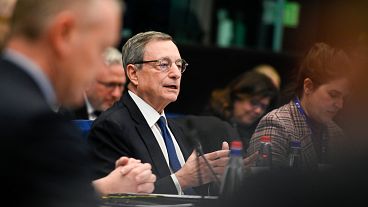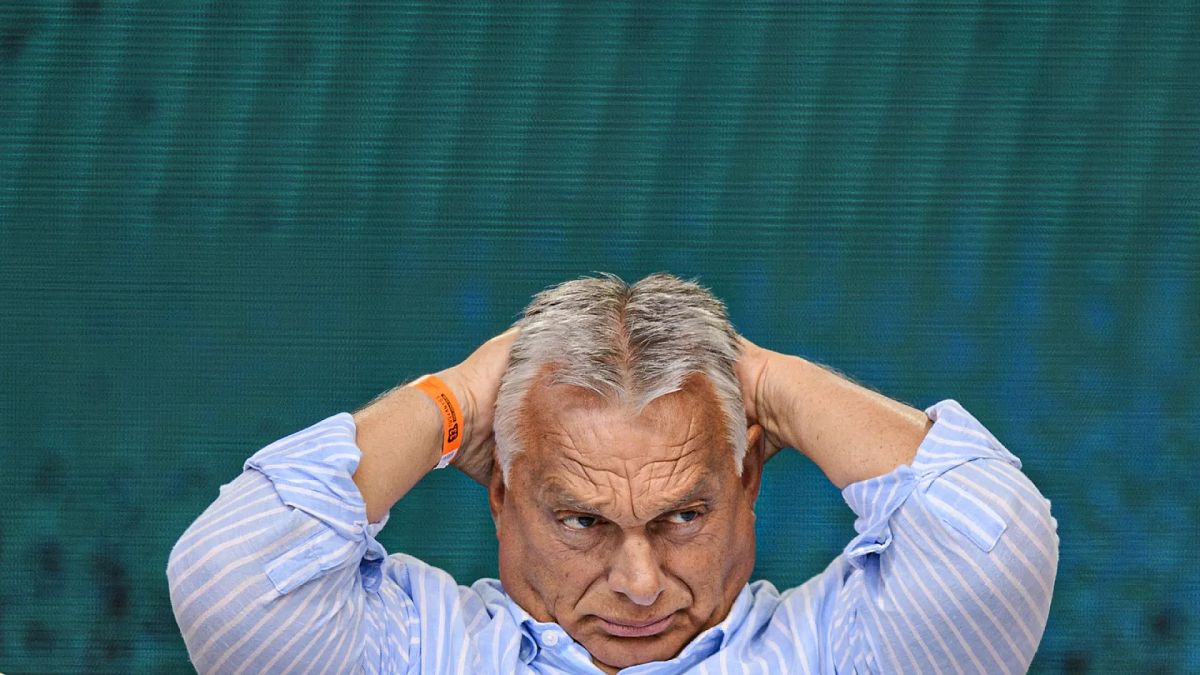Hungary's National Card scheme simplifies visa procedures and security screenings for "guest workers" coming from Russia and Belarus.
The European Commission has asked Hungary to explain its recent decision to ease visa requirements for Russian and Belarusian citizens, which Brussels worries "could lead to a de facto circumvention" of the bloc's restrictions and undermine safety standards across the passport-free Schengen Area.
"Russia is a security threat. We need more, not less vigilance. Giving potential Russian spies and saboteurs easy EU access would undermine the security of us all," said Ylva Johansson, the Europen Commissioner for Home Affairs.
"If their easy access scheme is a risk, we will act."
In a letter addressed to Hungary's Ministry of Interior, dated 1 August, Johansson questions the fresh changes to the country's National Card scheme, which simplifies visa procedures and security background checks for "guest workers" in specific sectors.
The permit lasts for two years and can be renewed for an additional three, paving the way for qualifying for permanent residency.
Euronews spoke with an expert who says 500 Russian intelligence agents or spies have been kicked out of the EU since the war in Ukraine began in 2022.
"Russia has far less 'traditional' spies in Europe now than it had before the large-scale war. So Russia is forced to rely more and more on other forms of espionage. So these tasks would be not carried out by spies disguised as diplomats, but rather in other forms of "covering", as guest workers, for example," said András Rácz.
In early July, coinciding with the start of Hungary's presidency of the EU Council and Viktor Orbán's contentious trip to Moscow, the country extended the National Card to citizens from Russia and Belarus. It was previously opened to applicants from Ukraine, Bosnia-Herzegovina, North Macedonia, Moldova, Montenegro and Serbia.
Budapest says many of these workers will be employed in the construction of a nuclear plant using Russian technology, which Orbán has insisted be spared from sanctions.
The update initially went unnoticed until Manfred Weber, the chair of the centre-right European People's Party (EPP), sent a letter in late July to European Council President Charles Michel, demanding a discussion at the leaders' level.
The "questionable" new rules "create grave loopholes for espionage activities" and could enable "large numbers of Russians to enter Hungary with minimal supervision, posing a serious risk to national security," Weber said in his letter, first reported by the FT.
Orbán's spokesperson described Weber's words as "absurd and hypocritical" and said Hungary's migration system was the "strictest" in the bloc.
'Appropriate consequences'
The Commission, which is tasked with ensuring national legislation complies with EU norms, jumped on Thursday evening into the growing controversy.
"We must remain vigilant as Russia employs every unconventional tool to destabilise the European Union and its values," Johansson says in her missive.
At the core of the Commission's concerns is the functioning of the Schengen Area, a vast region that encompasses 450 million citizens across 29 European countries and where border checks have been abolished to allow seamless transit of people.
While each member state is entitled to design and implement its own visa requirements, they are all bound by a common set of minimum rules to guarantee uniformity. Once a third-country national is allowed to enter one Schengen country, they can move freely across the entire area, which means authorities need to trust each other's decisions.
Any scheme to attract foreign workers "need to be carefully balanced not to put at risk the integrity of our common area without internal border controls and to duly consider potential security implications," Johansson wrote.
"It is of paramount importance to take into account the security and migratory considerations of all other Schengen States."
Despite the far-reaching raft of sanctions imposed since the start of the Ukraine war, Russian and Belarusian citizens are still allowed to enter EU territory. However, the closure of airspace to Russian-operated flights and stringent restrictions on land travel make it difficult for those nationals to make it into the bloc.
In the summer of 2022, the EU suspended its visa facilitation agreement with Russia and agreed to intensify scrutiny over the future applications submitted by Russian tourists.
Hungary's National Card could jeopardise this collective framework, Johansson warns, as it could weaken the obligation to "assess whether individuals crossing the external border pose a threat to public policy, internal security, public health or international relations," as well as the enforcement of sanctions.
Budapest has until 19 August to reply to a series of questions annexed to the Commissioner's letter, enquiring about the reasons for including the two nationalities in the fast-tracked visa scheme. The questions also relate to eligibility criteria, security checks and implementation of EU guidelines, a spokesperson told Euronews.
Once Brussels receives the answer, Johansson says, it will "draw the appropriate consequences."
This article has been updated.












